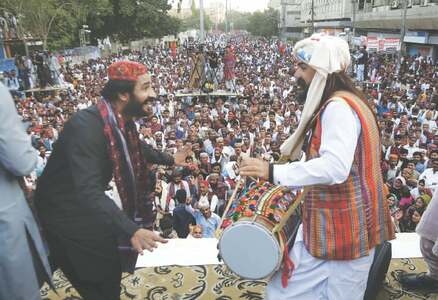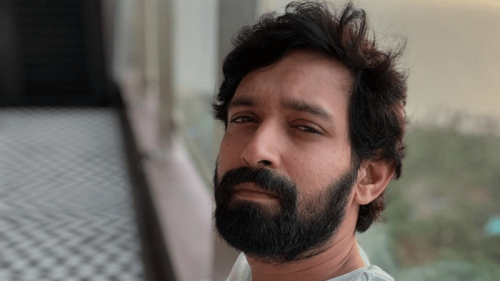KARACHI, May 29: As investigation teams trace the motives and people behind last week’s killing of Pakistan Muslim League (N) leader Tariq Khan, the history of such efforts of law-enforcers does not kindle hopes of a positive outcome as dozens of such initiatives taken after assassination of politicians in the city have remained inconclusive.
More than a dozen murders of the city’s popular political and social personalities over the past five years deprived almost all parties of their leaders but the killers of those important men have not been found.
A brief look at the police authorities’ response right after the murder of prominent personalities during the last few years shows that special investigation teams have never produced the desired results.
“In most of the cases, there are various issues that need to be considered,” said Sultan Salahuddin Babar Khattak, the capital city police officer (CCPO).
“It is not only the political association or rivalry that claims the life of any leader but also some personal matters of the victim may also be responsible for the killing.”
Sometimes even a third party might be involved in the incident in an attempt to destabilize the law and order situation in the city, he said.
However, questions put to the police chief did not elicit a satisfactory response about the fate of inquiries ordered into high-profile murder cases which, he suggested, was ‘needed to be checked.’
In early 2003, Muttahida Qaumi Movement’s member of the National Assembly Khalid Bin Waleed was killed by gunmen. His killing led to the formation of an independent police inquiry team.While the committee’s report remained a mystery, former speaker of the Sindh assembly and vice-president of the PML (Q) Sindh, Raziq Khan, was gunned down in broad daylight on one of the busiest city roads near the City Courts near Mithadar in June the same year.
This time the government went a step further and appointed an additional district and sessions judge to hold an inquiry into the murder of the then ruling party’s leader. However, those efforts also produced no results.
The year 2004 witnessed targeted killings of two senior leaders of the Pakistan People’s Party (PPP), which attracted serious criticism from political quarters towards the government, prompting independent police and judicial inquiries. But the killers of the PPP leaders are still unknown.
First, Andullah Murad, the party’s Sindh Assembly member, was intercepted and killed in March 2004 in Malir, from where he had been elected. His murder forced the authority to set up a judicial commission headed by a Sindh High Court judge, which never made public the inquiry’s findings, still being awaited by the party and family of the deceased leader.
The same year, Munawwar Soharwardy, the Sindh PPP’s information secretary, was shot dead on the main Business Recorder Road. The police investigation report for that particular killing is also awaited.
In January 2005 armed attackers shot dead Baloch Ittehad Tehreek chief Anwar Bhaijan, in what was believed to be a case of targeted killing. His murder was seen as a serious blow to the peace initiatives undertaken by community elders in Lyari amid years-long gang warfare between two groups. The police authorities pledged that the culprits would be arrested within a month, but even after more than three years the commitment remains unfulfilled.
In May the same year, Naib Amir of the Karachi chapter of the Jamaat-i-Islami Aslam Mujahid was kidnapped and killed in Landhi. On the order of the provincial home ministry, a committee, headed by a DIG-level officer, was formed to find the killers. Both the party and the police authorities remain unaware of the findings of the committee.
And then in March 2006, PML-Q’s additional general secretary Badar Iqbal was killed on the main M. A. Jinnah Road by unknown attackers. But investigations in these and other killings have never seen the light of day.
The authorities at the central police office (CPO) and law-enforcers, who have held several senior positions in the city police setup, believed that it was not always political influence that obstructed the outcome of such investigations.
“Karachi is not an easy-to-handle city for law-enforcers,” said Jahangir Mirza, former IG of Sindh, who held the office from January 2006 to April 2007. “I shouldn’t call the police force ‘incompetent’, but they may be described as ‘incapable’.”
He said the killers most of the time appeared smarter than the law-enforcers and most importantly the police never got support from area people during investigations.
“When I was there (as the IG), I found in some cases that our force in Karachi did not even know about the place of the crime. So, there was not lack of competence or willingness but different factors made their job difficult,” added Mr Mirza.














































Dear visitor, the comments section is undergoing an overhaul and will return soon.